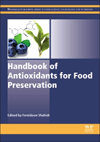Are plant-based milk alternatives healthier?
Plant-based beverages fall short on protein quality and quantity.

At least nine different plants are used to make milk alternatives, including almond, cashew, coconut, flax, hemp, macadamia nut, oat, rice and soy. And the category is exploding.
“U.S. sales volume of plant-based milk alternatives was 26 billion pounds for the week ending April 18, 2020, and growing at almost double-digit rates versus 2019,” said Mark Fahlin, Cargill business development, in a recent webinar (bit.ly/31peq3I).
Let’s dive into the category and see how plant-based milk alternatives actually compare nutritionally to dairy milk.
Protein shortfall
Almond “milk” has a 76% market share in the milk alternative space, despite the fact that brands such as Almond Breeze contain only 1 gram of protein per serving. Soy “milk,” which has dropped from 25% to 10% in market share, does contain 8 grams of complete protein.
This year, oat “milk” ousted coconut “milk” for third place in market share. One brand of oat beverage, Pacific Foods, contains 4 grams of protein, but the protein digestibility-corrected amino acid score (PDCAAS) of oats is only 0.67. Protein levels generally are 1 gram or less for popular brands of cashew, macadamia, almond, coconut and rice milk alternatives.
Few dairy alternatives match the 8 grams of protein present in a serving of dairy milk. A newcomer to the market, Good Karma “Flaxmilk” is fortified with pea protein for a total of 8 grams of protein. Pea protein has a PDCAAS of 0.8.
While PDCAAS and the newer digestible indispensable amino acid score (DIAAS) are important methods to determine the quality of a protein, the physiological effects of a protein need to be considered to better understand protein quality. Sessions at IFT’s SHIFT20 took a deeper dive into the topic. Moises Torres-Gonzalez of the National Dairy Council explained that in comparison to dairy protein, plant proteins are not as rich in leucine and other essential amino acids such as lysine and methionine, and they don’t perform as well in clinical trials of muscle protein synthesis.
Stacy Pyett of Wageningen University & Research shared results from human clinical trials on protein digestibility. Plant proteins are typically less digestible, and digestibility is affected by the food matrix and individual variation in the ability to digest such proteins.
When it comes to price, consumers also pay a hefty fee for milk alternatives. Half gallons of popular brands of oat and flax beverages cost $3.55 and $4.65, respectively. I pay only $2.49 for a full gallon of store brand real milk.
Looking for a reprint of this article?
From high-res PDFs to custom plaques, order your copy today!







